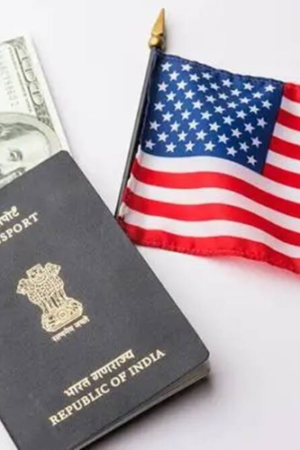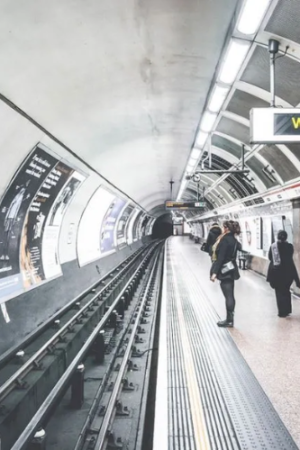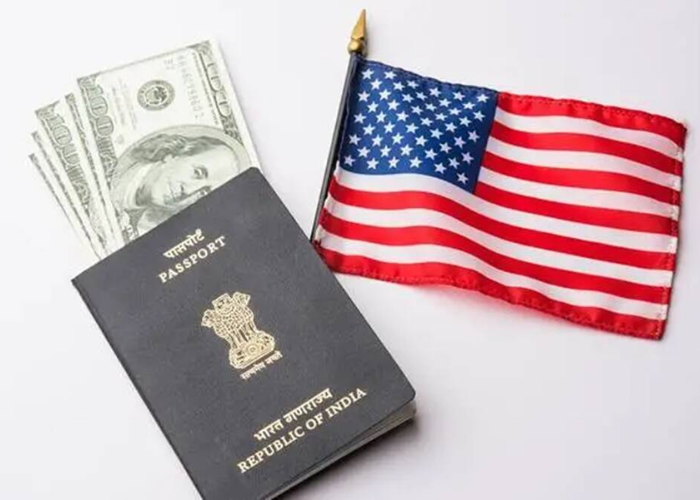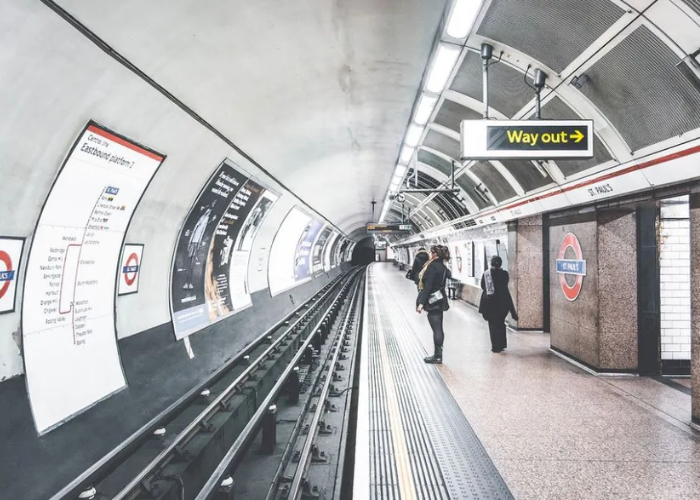The news of America granting work permits to Indian spouses of H-1B visa holders is a major milestone in the lives of many families. It has been a long-standing demand for Indian professionals working in America on work visas, which has finally been met. The move will benefit thousands of families and open up more job opportunities for those already in the country.
Overview of H-1B Visas
This is a type of non-immigrant visa that allows employers to employ foreign workers in speciality occupations temporarily. It is used by many foreign nationals each year to pursue their career goals in the United States. The H-1B visa program is very popular with Indian citizens, as it allows them to work in the US for a limited period. Recently, the United States Citizenship and Immigration Services (USCIS) granted work permits to certain Indian spouses of H-1B visa holders. This welcome step will benefit many Indian families by allowing them to stay together while pursuing their career goals in the United States.
The H-1B visa program is designed for individuals with a higher education or specialised knowledge in a particular field. To qualify for the H-1B visa, applicants must have a bachelor’s degree or higher in their field of speciality. They must also have a job offer from a U.S. employer in the speciality field. The employer must file a Labor Condition Application with the Department of Labor that states the wage offered to the employee and that the employment will not adversely affect U.S. workers’ wages and working conditions. The employer must also obtain a certified copy of the applicant’s degree.
The new work permit rule will benefit Indian spouses of H-1B visa holders. With the work permit, these spouses will be able to work legally in the United States for a period of up to three years. The work permit will also provide them certain benefits, such as social security and Medicare. This will enable them to pursue their career goals without worrying about the legalities of their immigration status.
Impact of America Granting Work Permits
The Impact of America Granting Work Permits to Indian Spouses of H1-B visa holders is far-reaching and will positively impact the American economy. Firstly, it will benefit the Indian spouses by providing them with the opportunity to gain employment in the United States, which will contribute to the growth of the US economy in terms of productivity, innovation, and diversity. Secondly, the spouses of these visa holders will also contribute to the American economy through their taxes, which will help to support the government’s programs and services. Finally, this measure will also benefit the visa holders themselves, as it allows them to remain in the US for longer periods, which will help ensure that their skills and expertise remain in the US, thus continuing to strengthen the American economy. All in all, this measure is a win-win situation for both the US and the Indian spouses.
Indian Spouses and the American WorkForce
The United States of America has opened its doors to a new influx of talent in the form of Indian spouses of H-1B visa holders. A recent policy change by the United States government has granted work permits to the spouses of H-1B visa holders, allowing them to participate in the American workforce. This is a monumental move for the Indian community, as it allows the spouses of H-1B visa holders to work in the United States and increase their chances of achieving economic stability. This move by the United States government is part of a larger effort to attract and retain highly skilled immigrants, and it is a welcomed change for many Indian families.
Not only will this change allow more Indian immigrants to join the American workforce and contribute to the economy, but it will also allow the families of H-1B visa holders to stay together. These families will no longer have to choose between a job in the United States and staying together, as the American government has made it possible for them to do both. This is a breakthrough for the Indian community, allowing them to remain together and contribute to the United States economy.
The United States government has made this move to encourage more highly skilled immigrants to come to the United States and to retain those already here. This is a great opportunity for Indian immigrants, as it allows them to stay with their families and contribute to the American workforce. The government has made a smart decision in granting work permits to Indian spouses of H-1B visa holders, which will benefit both the United States and the Indian community.
Spotlight: The Women Behind the Work Permits
The spotlight of the recent news that America has granted work permits for Indian spouses of H-1B visa holders shines on the women who can now benefit from this change. This work permit, officially known as the Employment Authorization Document (EAD), is intended to give these women much-needed financial independence and the freedom to pursue their career ambitions. For many of these women, this opportunity is life-changing, as it allows them to break away from the traditional role of stay-at-home mother and wife and pursue a successful career. In addition to offering economic benefits, the EAD promotes gender equality, allowing women to be more equal with their male counterparts in the workplace. This is especially important for women in India, where gender inequality is still rampant, and for many women, the prospect of a career is not even considered. The granting of the EAD is a step in the right direction for Indian women and is a testament to the progress made in the fight for gender equality.
Challenges Faced in Obtaining the Work Permit
The process of obtaining a work permit for Indian spouses of H-1B visa holders in America is laborious. The primary challenge is the lengthy wait times associated with the permit application. The U.S. Citizenship and Immigration Services (USCIS) requires a comprehensive application review before granting the permit. This process can take up to a year to complete and is often hindered by a backlog of applications. Furthermore, many applicants are denied the permit due to the strict eligibility criteria, which can be difficult to meet. Additionally, the paperwork associated with the process is extensive and time-consuming. It is not uncommon for applicants to have to resubmit multiple applications or provide additional documentation to secure a work permit. These factors complicate the process and lead to a lengthy wait time. This can be especially challenging for applicants eager to begin working as soon as possible.
Conclusion
America has granted work permits for Indian spouses of H-1B visa holders, which greatly benefits those families. It allows the non-immigrant partner to pursue their career dreams while providing financial support to the family. This policy change also helps reduce the family’s economic burden, as both partners can now contribute to the household income. It is a welcome step towards greater gender equality, as it offers more freedom and autonomy to the female partner. Finally, it is a recognition that the H-1B spouses are a valuable resource to the country and should not be denied opportunities to contribute to the economy.












